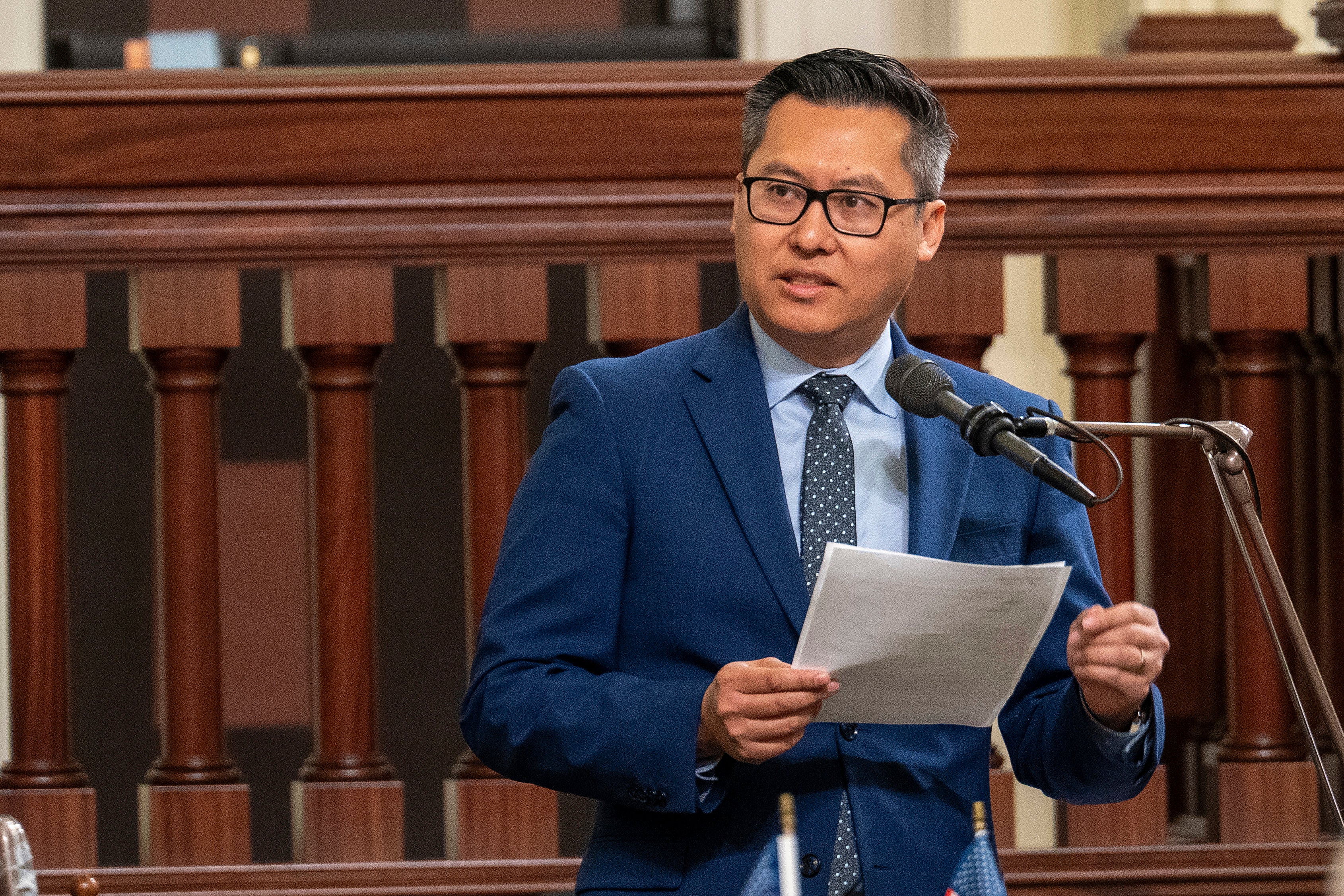A California bill aiming to ban confidentiality agreements when negotiating legislation fails
A bill to ban the use of confidentiality agreements when negotiating potential laws in California has failed to pass

Your support helps us to tell the story
From reproductive rights to climate change to Big Tech, The Independent is on the ground when the story is developing. Whether it's investigating the financials of Elon Musk's pro-Trump PAC or producing our latest documentary, 'The A Word', which shines a light on the American women fighting for reproductive rights, we know how important it is to parse out the facts from the messaging.
At such a critical moment in US history, we need reporters on the ground. Your donation allows us to keep sending journalists to speak to both sides of the story.
The Independent is trusted by Americans across the entire political spectrum. And unlike many other quality news outlets, we choose not to lock Americans out of our reporting and analysis with paywalls. We believe quality journalism should be available to everyone, paid for by those who can afford it.
Your support makes all the difference.A bill that sought to ban the use of confidentiality agreements when negotiating potential laws in California has failed to pass a state legislative committee.
The proposal by Republican Assemblymember Vince Fong failed to get enough votes to pass out of the Assembly Elections Committee on Thursday. Two Republicans voted for the bill while Democratic Assemblymember Gail Pellerin, the committee chair, voted against it.
Five other Democrats on the committee did not vote.
The legislation was inspired by last year's negotiations over a bill that mandated a $20 minimum wage for fast-food workers. The bill, which Gov. Gavin Newsom signed into law, includes an exception for restaurants that produce their own bread and sell it as a standalone menu item.
It's not clear why that exception was included. The exception was also included in similar legislation that passed the year before.
Bloomberg News reported the exception was meant to benefit one of Newsom's wealthy campaign donors who owns Panera Bread restaurants. Newsom and the donor, Greg Flynn, denied the story. The Newsom administration said the exemption does not apply to Panera Bread restaurants. Flynn also pledged to pay his workers $20 an hour beginning April 1.
Labor unions and industry groups representing California restaurants met privately last summer to discuss the bill before coming to an agreement. The parties signed a nondisclosure agreement, which KCRA first reported.
Fong criticized that agreement. He introduced a bill that would void any nondisclosure agreement relating to the drafting, negotiation, discussion or creation of legislation. The bill would have also banned public officials from signing these agreements or asking third parties to sign them.
“Nondisclosure agreements certainly have their place to protect businesses' proprietary and financial information. But they should not be used in the crafting and negotiating laws that affect the daily lives of our constituents,” Fong said. “The public already has a poor perception of the legislative process. Allowing the use of NDAs will further erode and corrode their trust in government.”
Pellerin, the Democratic chair of the committee, noted there has been no evidence that public officials have signed confidentiality agreements related to legislative negotiations.
“The crux of what this bill seeks to address are conversations between private parties, not legislative negotiations involving public officials,” she said. “That's a complicated issue.”
Pellerin said the issue was so complex that lawmakers did not have enough time to fully consider it. Fong introduced the bill last week. The committee held a special hearing Thursday to consider it before a legislative deadline on Friday.
Fong, who has been a frequent critic of how quickly Democrats often approve legislation, noted the Legislature often moves fast for priority bills. He noted that just before Thursday's hearing, Democrats in the state Assembly — including Pellerin — voted to amend a bill to allow Arizona doctors to come to California and provide abortions for their patients.
“I just would respectfully ask that this bill, with the importance of preserving the lawmaking process of this institution, would be allowed to move forward to preserve, you know, what the people expect us to do when we work on their behalf,” Fong said.